Think about it: if you died and were brought back to life, would your life be different? I tend to think we’d all say yes, very different. But how? I often wonder about Lazarus and how his life looked after he was raised from the dead by Jesus. We don’t get that part of the story, but I imagine he took care to proclaim the Good News that he heard from Jesus, and saw as he sprang from the grave.
You know, living is subjective. What we might think of as “really living” and what the world may tell us is living the life we should all have is probably going to be quite different than the real life we hear proclaimed in these readings today. So if we want to know the meaning of life, I think we should spend some time reflecting on today’s Liturgy of the Word. And then pray to know whether that corresponds to what we think life is all about, or not. We might find ourselves, like Lazarus, rethinking life and finding new purpose.
Our first reading today tells us that life without spirit is really death. Ezekiel prophesies that God sees his people dead, but will open their graves and have them rise. But the new life he intends to give involves receiving the spirit:
I will put my spirit in you that you may live,
and I will settle you upon your land;
thus you shall know that I am the LORD.
I have promised, and I will do it, says the LORD.
In the second reading, Saint Paul echoes Ezekiel’s words and tells the Roman Church, and us too, that we who are in Christ have the Spirit who raises us from the dead:
If the Spirit of the one who raised Jesus from the dead dwells in you,
the one who raised Christ from the dead
will give life to your mortal bodies also,
through his Spirit dwelling in you.
Then we have Martha, Mary and Lazarus in our Gospel reading. In his Gospel, John is very clear about death. When Jesus hears about Lazarus’s illness he says to his disciples, “Our friend Lazarus is asleep,” and they are encouraged by that, thinking that sleep is a good cure for illness and trusting that Lazarus will be well. So Jesus has to say it clearly:
“Lazarus has died.
And I am glad for you that I was not there,
that you may believe.
Let us go to him.”
And, to underscore that Lazarus was really, really dead, when Jesus orders the bystanders to roll the stone away from the tomb, Martha points out the practical matter:
“Lord, by now there will be a stench;
he has been dead for four days.”
That was significant, because the Jews believed that, if a person stayed dead for three days, he or she was definitely dead. So on day four, Lazarus was really, really dead, and there would be no waking him up.
Except for the Spirit of Jesus. That Spirit, the One who would raise Jesus from the dead, gives life to the mortal body of Lazarus, for the honor and glory of God. So good for Lazarus, but what does it mean for the rest of us, standing there in awe of the miracle we have just witnessed?
During Lent, we have been journeying with our catechumens, who are now called the Elect, as they prepare to be baptized, confirmed, and receive first Holy Communion at the Easter Vigil. Much like them, there are three groups of catechumens in today’s Gospel. The first group is Mary and Martha, those friends of Jesus that are part of John’s Gospel a few times. Here, the rubber meets the road in their faith. Here, like so many of us, they have something tragic happen in their lives, and now they have to grapple with whether their faith helps them with that or not. Mary is so troubled that she doesn’t even go out to meet the Lord until her sister tells her a white lie that Jesus was asking for her. Both she and Martha, when they first see Jesus, complain that he should have come sooner so that he could have saved Lazarus. But Martha has a little faith. She says very importantly that “Even now, I know that whatever you ask of God, God will give you.” That’s the beginning profession of faith. She knows that Jesus has power over life and death. So then they have a little catechetical dialogue about life and death and eternity, and at the end of it, Martha professes that Jesus is the Son of God who was coming into the world. The sisters move from their grief, to faith in Jesus, even before he accomplishes the miracle.
The second group of catechumens is the Apostles. God bless them, they’re still trying to make sense of Jesus. We can’t be too hard on them, because they’re a lot like many of us who are trying to be men and women of faith, but don’t really have all the facts right now. “Let us also go to die with him,” Thomas says. And they will, of course: they have to go through the cross before they see and understand Jesus fully. We too will have to take up our own crosses before we can fully understand the salvation that Christ has won for us.
The third group of catechumens is the Jews. A bunch of them are weeping with Mary, and they go with her to see Jesus. Along the way, they complain that if he could heal the man born blind like he did in last week’s Gospel, why couldn’t he have healed Lazarus? But seeing the miracle, they come to believe, in the very last verse of this long reading. They are a lot like those of us who are skeptical for a long time, but see something wonderful materialize in the life of another and finally decide there’s something to this Jesus that’s worth believing in.
Key to all of these catechumens is that, in order to move to belief, they had to have some kind of stench in their lives washed away. For Martha and Mary, they had to see past their grief. For the Apostles, they had to get over themselves and realize that Jesus was in charge. For the Jews, they had to get past their skepticism and let him perform miracles among them. For all of us, on the journey of faith, some kind of stench has to be washed away, in order to come to full faith in Jesus. And that stench, of course, is sin. The way it gets washed away is in baptism.
So if you take away anything from today’s Liturgy, let it be this: this reading is really all about baptism. Is it a foreshadowing of Jesus’ death and resurrection? Sure. But it is more about baptism. Because baptism is a kind of death. As Saint Paul says in our second reading today, baptism is the kind of death that gives life to our mortal bodies. It’s hard for us to imagine that kind of thing when the baptisms we’ve seen are just a mere pouring of water over a baby’s head. But baptism in the early church was full submerging in water while the formula was pronounced, after which they came up out of the water gasping for air. Believe me, they got the connection of baptism with death and resurrection!
Baptism is what washes away the stench in our lives. It does that with original sin, and if we live our baptism by participating in the sacraments, it does that with the sins of our daily life. The sacrament of Penance is an extension in a way of the sacrament of Baptism, in which the sins of our lives are completely washed away, leaving us made new and alive in ways we couldn’t imagine.
So today, Jesus sees us dead in the flesh, stinking of our sins. But he calls us forth in baptism, rolling away the stone of sin that keeps us from relationship with him, releasing us from the burial-bands that bind us, and calling us to new life.
So maybe in these closing days of Lent, we still have to respond to our Lord’s call to live. Maybe you haven’t yet been to confession before Easter. We have confessions tomorrow at 1:30pm, with thirteen priests to hear your confession. We invite you to come and have the stone rolled away and to be untied from your burial cloths. Wherever you find yourself at this point of Lent, I urge you, don’t let Easter pass with you all bound up and sealed in the grave. Don’t spend these last days of Lent in the grave. Come out, be untied, and be let go.
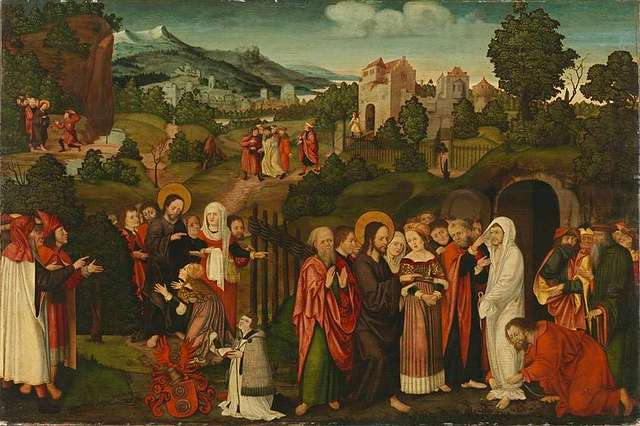
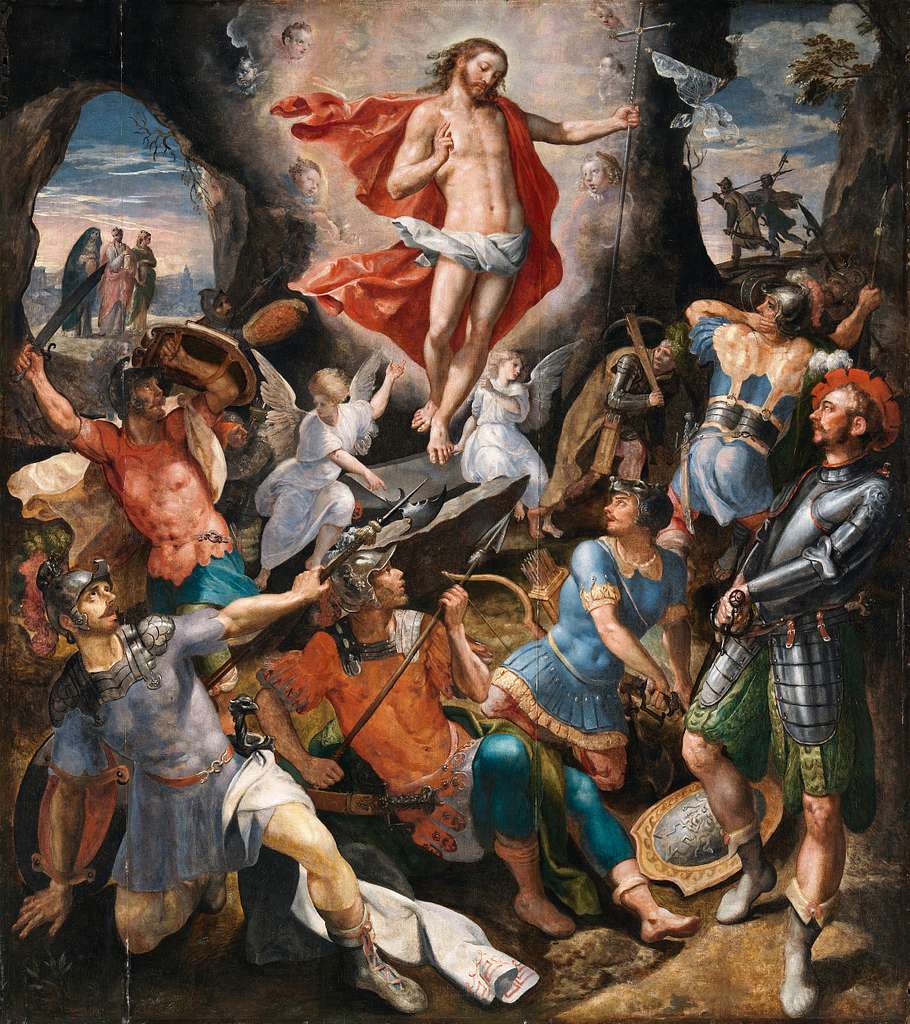
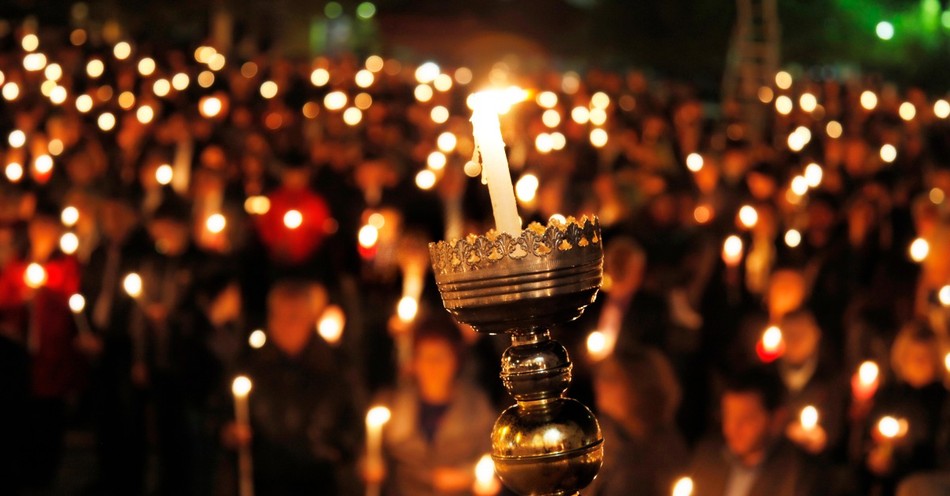
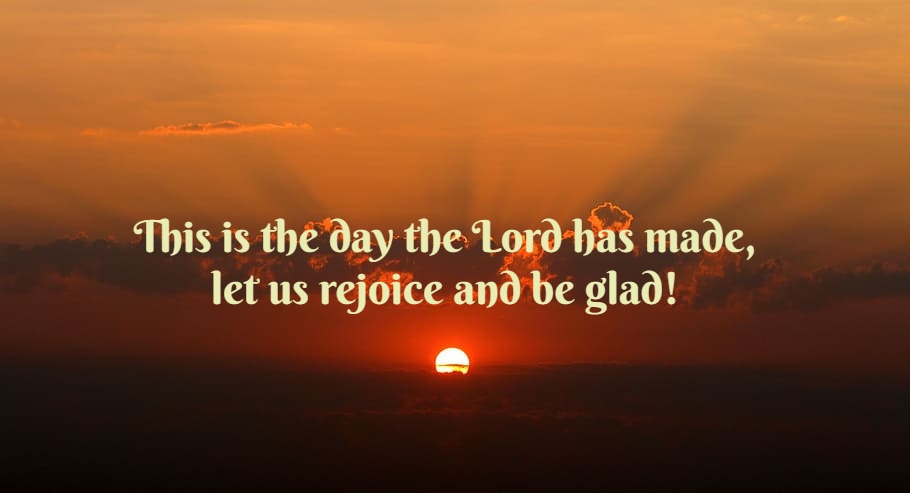
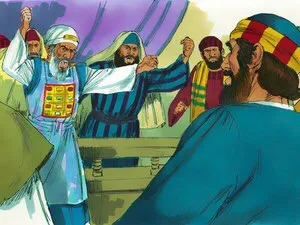

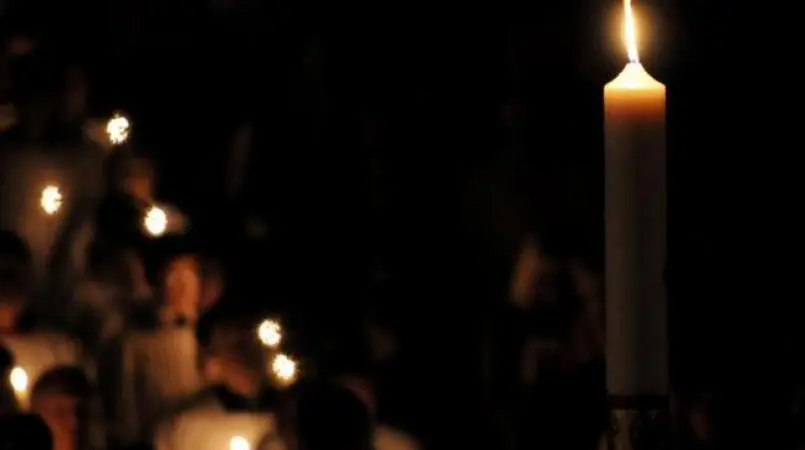
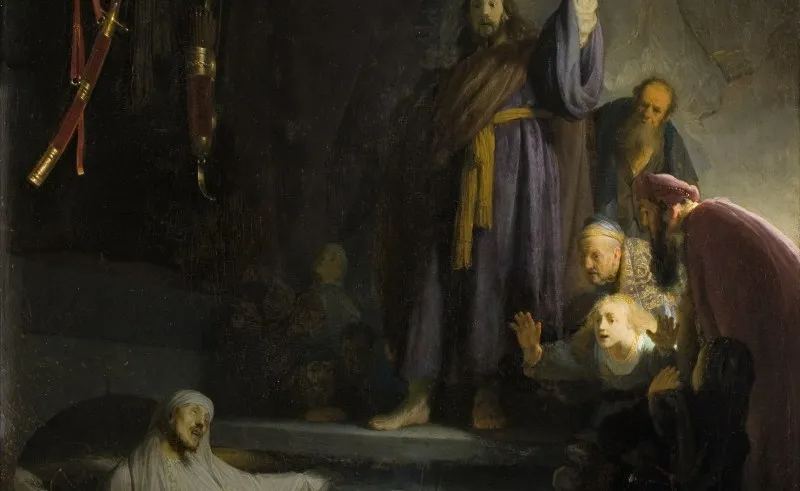
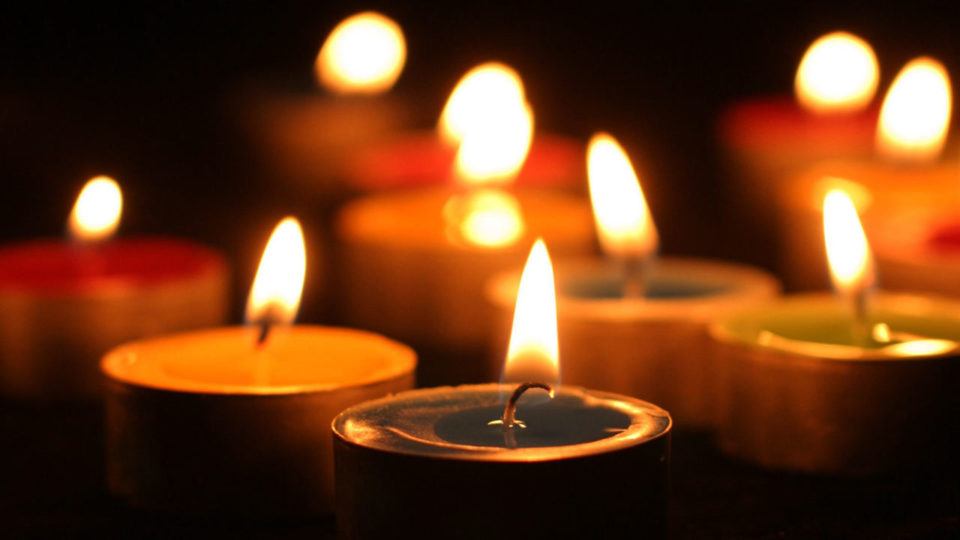
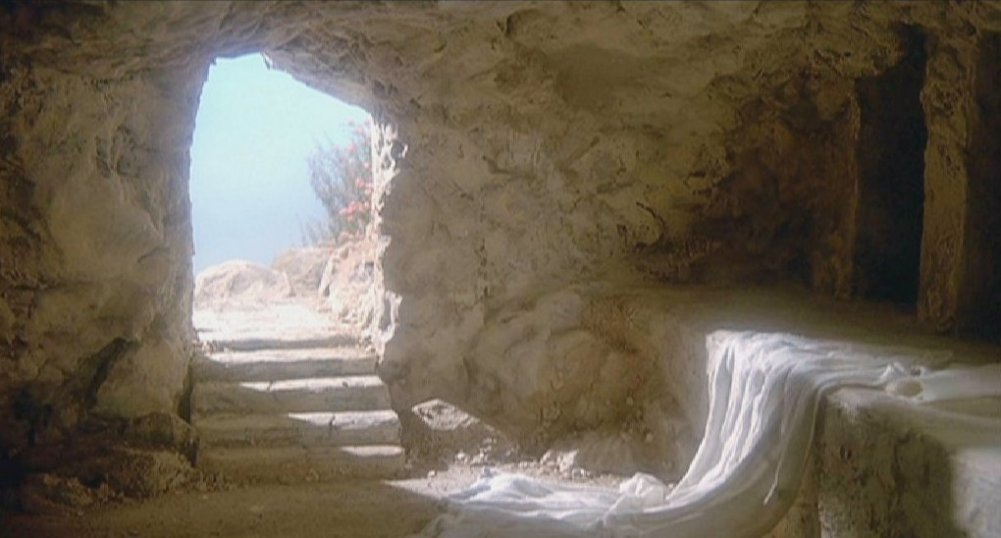
You must be logged in to post a comment.